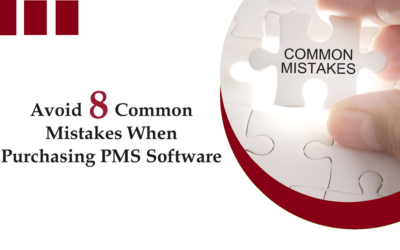
In the dynamic world of the hospitality industry, making informed decisions can mean the difference between success and failure. As the competition intensifies and customer expectations rise, leveraging the right tools and technologies becomes imperative for hoteliers and hospitality businesses to stay ahead of the curve.
One such essential tool is PMS Software, which, when coupled with data analytics, can unlock valuable insights and empower decision-makers to optimize operations, enhance guest experiences, and boost overall profitability. In this blog, we will explore how PMS and data analytics are transforming the hospitality landscape, enabling businesses to make more informed decisions that drive success.
Understanding PMS in the Hospitality Industry
Before diving into the power of data analytics, let’s first understand the role of Project Management Software in the hospitality sector. PMS is an integrated software solution that streamlines various aspects of hotel operations, from reservations and check-ins to housekeeping and billing. It acts as a central hub, connecting different departments and automating day-to-day tasks, enabling staff to focus more on providing excellent guest experiences.
PMS tools offer features such as task tracking, Gantt charts, resource management, and communication capabilities, providing a centralized platform for all stakeholders to stay on top of project developments. Embracing PMS empowers project managers and their teams to tackle challenges, deliver successful projects, and thrive in today’s dynamic business environment.
The Rise of Data Analytics in Hospitality Business
Data analytics has revolutionized decision-making across various industries, and project management is no exception. PMS platforms in the modern hospitality industry have evolved to become comprehensive systems that offer functionalities like guest check-in/check-out, room inventory management, staff scheduling, and reporting.
By centralizing these tasks, PMS Software simplifies workflows and reduces manual errors, ensuring greater efficiency across all hotel operations. Real-time updates and access to critical data enable hotel managers to monitor progress and address issues promptly. This data-driven approach leads to enhanced business performance, reduced risks, and improved resource utilization.
Integrating PMS with Data Analytics
The real magic happens when Project Management Software is integrated with data analytics tools. By combining the power of PMS data with advanced analytics capabilities, hotels can gain a comprehensive understanding of their operations, guests, and overall business performance.
Personalizing Guest Experiences
One of the significant benefits of data analytics is its ability to personalize guest experiences. With a rich dataset that includes guest preferences, past behaviors, and feedback, hotels can tailor offerings, such as room amenities, dining options, and recreational activities, to match individual preferences. This personalization not only enhances guest satisfaction but also encourages repeat visits and positive word-of-mouth marketing.
Demand Forecasting and Inventory Management
Data analytics helps hotels forecast demand patterns accurately, enabling them to optimize room rates and inventory to maximize revenue. By analyzing historical booking data, seasonal trends, and external factors, PMS integrated with data analytics can determine the ideal pricing strategies for different periods, ultimately driving higher profitability.
Enhancing Operational Efficiency
Data-driven insights allow hotel managers to identify bottlenecks and inefficiencies in their operations. By analyzing housekeeping, maintenance, and F&B data, for example, businesses can streamline processes, allocate resources effectively, and reduce costs without compromising on service quality.
Leveraging Data for Strategic Decision-Making
Data analytics enables hospitality businesses to make strategic decisions based on concrete evidence rather than relying on intuition alone. For instance:
Demand Forecasting and Pricing Optimization:
Predictive analytics plays a vital role in demand forecasting for hotels. By analyzing historical booking data, seasonal trends, and external factors such as events or holidays, hotels can accurately predict demand for specific periods. Armed with this information, they can optimize room rates, offer targeted promotions, and adjust inventory to maximize revenue during peak times and prevent revenue loss during low-demand periods.
Marketing Strategies
By analyzing customer data, hotels can identify their most valuable market segments and tailor marketing campaigns to target them effectively. Data-driven marketing strategies can lead to higher conversion rates and a better return on investment.
Guest Feedback and Reputation Management
By aggregating and analyzing guest feedback from various sources, including online reviews and surveys, hotels can gain valuable insights into their strengths and areas for improvement. Addressing customer concerns promptly not only improves the overall guest experience but also helps protect the hotel’s online reputation.
Revenue Management
In addition to optimizing room rates, data analytics can be used for revenue management across various hotel revenue streams, such as food and beverage, spa services, and events. Analyzing customer spending patterns and preferences helps businesses optimize pricing, promotions, and product offerings to increase revenue and maximize profit.
Remember that the best PMS system varies based on your specific business needs, so carefully assess how each option aligns with your goals and workflows before making a final decision. Consider conducting trials or demos to get hands-on experience with the PMS and involve key team members in the decision-making process to ensure buy-in and successful implementation of PMS system for your business.
Conclusion
In today’s data-driven world, data analytics has become an indispensable tool for the hospitality industry. By harnessing the power of data, hospitality businesses can make more informed and strategic decisions that positively impact every aspect of their operations. From understanding customer preferences to optimizing revenue streams and operational efficiency, data analytics empowers hotels to stay ahead of the competition and deliver exceptional guest experiences, solidifying their position as leaders in the ever-evolving hospitality landscape.





0 Comments